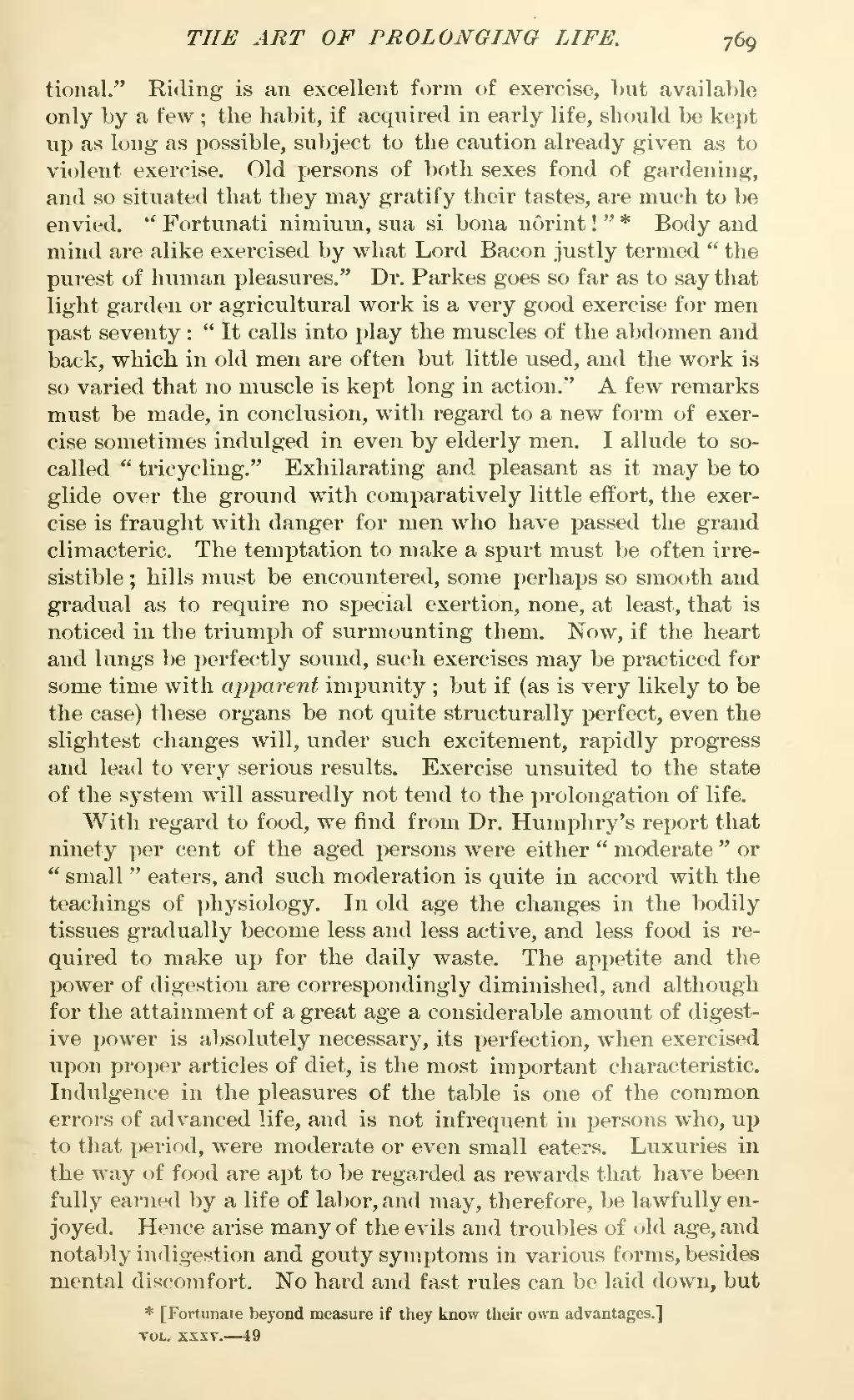tional." Riding is an excellent form of exercise, but available only by a few; the habit, if acquired in early life, should be kept up as long as possible, subject to the caution already given as to violent exercise. Old persons of both sexes fond of gardening, and so situated that they may gratify their tastes, are much to be envied. "Fortunati nimium, sua si bona nôrint!"[1] Body and mind are alike exercised by what Lord Bacon justly termed "the purest of human pleasures." Dr. Parkes goes so far as to say that light garden or agricultural work is a very good exercise for men past seventy: "It calls into play the muscles of the abdomen and back, which in old men are often but little used, and the work is so varied that no muscle is kept long in action." A few remarks must be made, in conclusion, with regard to a new form of exercise sometimes indulged in even by elderly men. I allude to so-called "tricycling." Exhilarating and pleasant as it may be to glide over the ground with comparatively little effort, the exercise is fraught with danger for men who have passed the grand climacteric. The temptation to make a spurt must be often irresistible; hills must be encountered, some perhaps so smooth and gradual as to require no special exertion, none, at least, that is noticed in the triumph of surmounting them. Now, if the heart and lungs be perfectly sound, such exercises may be practiced for some time with apparent impunity; but if (as is very likely to be the case) these organs be not quite structurally perfect, even the slightest changes will, under such excitement, rapidly progress and lead to very serious results. Exercise unsuited to the state of the system will assuredly not tend to the prolongation of life.
With regard to food, we find from Dr. Humphry's report that ninety per cent of the aged persons were either "moderate" or "small" eaters, and such moderation is quite in accord with the teachings of physiology. In old age the changes in the bodily tissues gradually become less and less active, and less food is required to make up for the daily waste. The appetite and the power of digestion are correspondingly diminished, and although for the attainment of a great age a considerable amount of digestive power is absolutely necessary, its perfection, when exercised upon proper articles of diet, is the most important characteristic. Indulgence in the pleasures of the table is one of the common errors of advanced life, and is not infrequent in persons who, up to that period, were moderate or even small eaters. Luxuries in the way of food are apt to be regarded as rewards that have been fully earned by a life of labor, and may, therefore, be lawfully enjoyed. Hence arise many of the evils and troubles of old age, and notably indigestion and gouty symptoms in various forms, besides mental discomfort. No hard and fast rules can be laid down, but
- ↑ [Fortunate beyond measure if they know their own advantages.]
